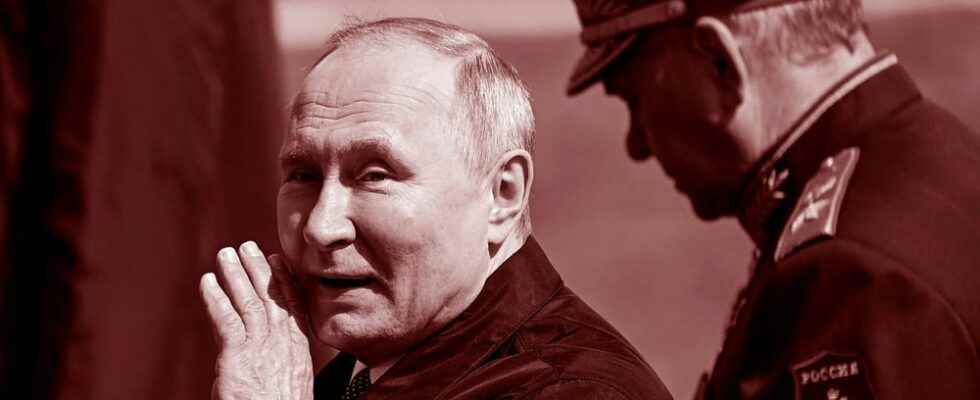It is said that the first thing Vladimir Putin did after taking the oath of office was to install a television in the office that he inherited from Boris Yeltsin.
A few years later, he took control of the major canals. With their help, he rocked his countrymen into a kind of floating reality where nothing is true and everything is possible, with the journalist Peter Pomerantsev’s famous description.
The war in Ukraine has taken Russian propaganda to a new level. State censorship is now in practice totalitarian. Calling war war is a crime. Citing “unofficial” sources is not allowed. Social media has been shut down, as have the independent media that still existed a few months ago.
But the war has also reshaped the underlying logic of propaganda. Before, the purpose was to “disguise” the TV viewers and thus shut them out of the political process, says a Russian sociologist to the Economist. Now they will be mobilized instead. “Active commitment is a requirement.”
The turnaround took place almost overnight. The talk of war was nothing but hysterical, Western intimidation propaganda – until it suddenly became real and inevitable.
That sounds absurd but most indications are that mobilization is working. Putin’s support is around 80 percent, although the figures should be taken with salt. Ukrainians who call Russian relatives are told that they are in fact being bombed by Western Nazis.
Putin rules with an iron fist – and he rules in a virtual reality, in order to borrow from historian Timothy Snyder. To offer the Russian despot a “way out” of the war failure in a kind of attempt to help him “save his face” is thus meaningless. Putin can create it himself, in his own reality.
European leaders who France’s Emmanuel Macron and Germany’s Olaf Scholz have not yet grasped this. They are worried that the war is now going too well for Ukraine, reports Politico. A “humiliated” Putin – Macron’s words – is a more dangerous Putin. Therefore, it is more important than ever to reach an agreement that he too can live with.
“Anyone who wants to end the war should think more about how Ukraine can be assisted and less about problems that Putin does not even have.”
But it is misconceived, for three reasons.
Firstly is it immoral. Ukrainians have no obligation to “help Putin save his face by paying with our territory”, as President Zelensky expresses it with reference to Russian claims on the Donbass region of eastern Ukraine.
Secondly, it is pointless. Cheats rings in it “If Putin is defeated in Ukraine, he will still proclaim victory on television and the Russian people will believe him, or pretend to believe him.”
Third, it is dangerous. Meeting Putin will be a way to reward war crimes. That would give the Kremlin the right to make the initial assessment that the West is too weak to withstand Russian aggression. And it would send a destructive signal to other strong men. It has consequences.
In an interview in SvD emphasizes the Estonian Prime Minister Kaja Kallas just this. A peace agreement would not put an end to terrorism, she warns. Russia will simply continue to kill and persecute Ukrainians in the occupied territories.
Kallas calls on European heads of government to stop calling Putin so that he actually understands that he is isolated.
Exactly how he would handle it no one knows. But to again talk to Snyder: Anyone who wants an end to the war should think more about how Ukraine can be assisted and less about problems that Putin in fact does not even have.
The Kremlin does not need our help.
